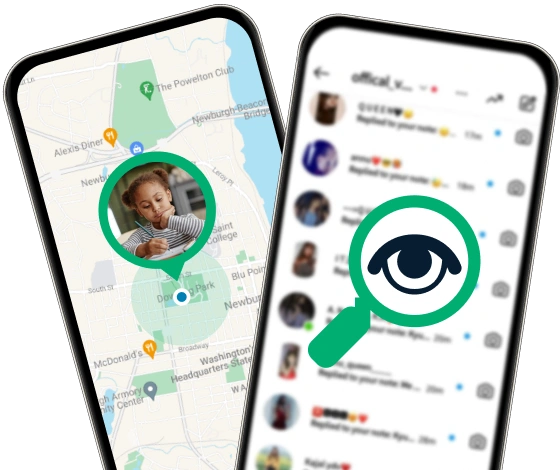Privacy has always been a big concern for many of us. You might be wondering if the person who pays for your phone plan can actually see your text messages. This question pops up often, especially in families where one person pays the bills and everyone else uses their phones freely. In a nutshell, while the primary account holder can view details like call log history and data usage, they cannot see the contents of text messages you send and receive.
This blog will dive into what phone plan holders can and cannot see on family plans. We’ll also touch on concerns about privacy and how much control the primary account holder has over the secondary ones. Ready to learn more? Keep reading!
Understanding Phone Plan Holder’s Privileges
Phone plan holders have special rights on their accounts. They can check call logs, data usage, and billing information for every line under their plan. This means they see who you called or texted, how much internet you used, and how much everything costs. They manage these details through the account’s main dashboard, which is accessible online or via the provider’s app.
Account holders can also set limits on phone use with features like Family Allowances. This lets them control how many minutes you talk, texts you send, and even which numbers you can contact. It helps keep the phone bill under control and ensures that everyone uses their phones responsibly within set boundaries.
Want to read someone else’s text messages secretly?
The ultimate phone tracker is the perfect solution. Install uMobix to monitor all activity
Can Phone Plan Holders See Text Messages?
Primary account holders have some access to text messages on family plans. However, there are some caveats.
Primary Account Holder’s Access
The primary account holder on a family plan can check the messaging history. They see incoming and outgoing mobile numbers plus time stamps but not the message content. This is because AT&T, like other providers, respects privacy and doesn’t store these details.
T-Mobile users have similar access with an added option. By adding Family Allowances to their account, they manage who can send texts and make calls.
Concerns about privacy come up often. People worry if the main person in charge of the plan sees everything texted or shared. Some phone plans might let this happen, depending on rules set by the carrier. However, for iMessages or messages sent through apps like WhatsApp or Messenger, only those sending and receiving them have access to read them.
Secondary Line’s Access
Users on a family plan, other than the primary account holder, have limited access to information. They cannot see text messages sent or received by others on the plan. This means your texts stay private between you and the person you’re texting. Secondary users can check their own call logs, data usage, and some billing details related to their line through the account app or website.
Concerns about privacy lead many to worry about whether others in their family can read their messages. Rest assured, only senders and recipients view the content of text messages. For those with iPhones, sharing an Apple ID might allow others to see iMessages unless settings are adjusted for privacy.
What Can Account Holders View on Family Plans?
Account holders on family plans can monitor call logs, track data usage, and access billing information. They have visibility into the overall phone activities and expenses of the connected lines.

Track any phone with the advanced monitoring app
Monitor text messages on someone’s phone anonymously with uMobix
View Texts with uMobixCall Logs
The main account holder for a family plan can access call logs, including incoming and outgoing calls, with details such as phone numbers, timestamps, and call duration. This information is available to the primary account holder through their online account or monthly billing statements. Different phone plan providers may offer variations in the level of detail accessible regarding call logs on family plans.
Data Usage
On T-Mobile family plans, specific policies grant access to view data usage for all lines on the plan. The primary account holder can monitor how much data each line has used during a billing cycle and set limits if necessary.
Phone plan holders can access data usage information for the lines on their family plan. This includes details about the amount of data used by each line and helps in managing the overall data consumption.
By reviewing this information, account holders can ensure that everyone stays within their allocated data limits, preventing any unexpected overage charges. Additionally, some phone plan providers offer tools to set alerts or limits on data usage for individual lines, helping to control and monitor the use of mobile data more effectively.
Some users may question if phone plan holders accessing data usage violates privacy rights. However, monitoring data usage is primarily a practical measure to manage costs and prevent excessive charges rather than an invasion of privacy.
Billing Information
The primary account holder on a family phone plan may have access to billing information, including detailed call logs, data usage, and charges for each line. Some phone plan providers offer tools for managing allowed numbers, minutes, messages, and downloads through features like Family Allowances. However, this may vary depending on the specific policies of the phone plan provider.
When reviewing billing information on a family plan, the primary account holder can monitor usage and manage expenses by accessing detailed breakdowns of call history and data usage for each line.
Conclusion
The primary account holder can access messaging history on a family plan and manage allowed numbers and messages. The extent of what the account holder can see in terms of text messages may vary based on specific phone plan policies and features. The law says that only phone numbers can be seen, but not the actual content of text messages.
FAQ
No, phone plan holders cannot directly see text messages on smartphones or mobile devices through the carrier like Verizon or T-Mobile. They can see how much data you use but not specific texts.
The current account holder might see which websites have been visited if they use tools or software, but typically, carriers don't provide detailed browsing history, such as visits to Facebook or searches in Internet Explorer.
No, just paying for your smartphone doesn't give someone access to your private emails or social media platforms like Twitter automatically.
Yes, if a mobile device gets infected by viruses from dubious downloads off the internet, it could compromise privacy and potentially allow others to access your voice memos, text messages, and more without permission.
Family plan holders do not get specific details about which apps you download from places like Amazon.com onto your smartphone; they may only see overall data usage numbers.

Latest posts
- 10 Best Apps for Parents to Monitor Social Media: 2026 Guide
- Complete List of Keywords to Block for Parental Control
- Does Telegram Notify Screenshots? Everything About Screenshot Detection
- How to Find Someone’s Deleted Instagram Posts: Complete Guide
- Family Tracking App by uMobix: Keep Loved Ones Safe




